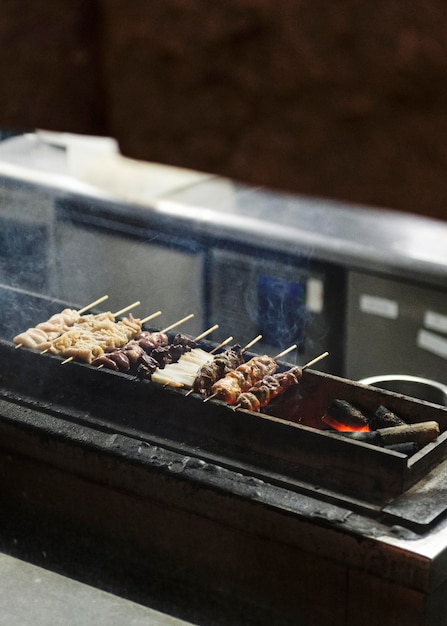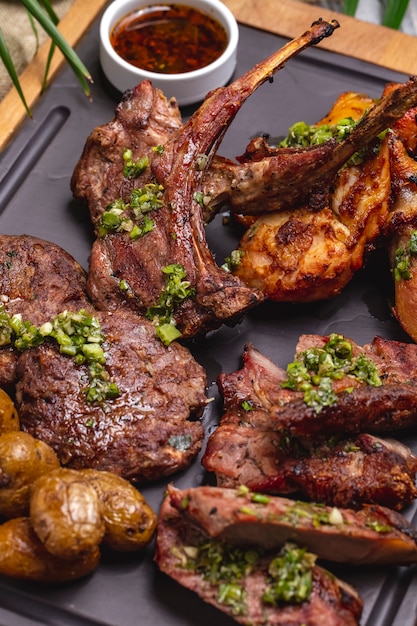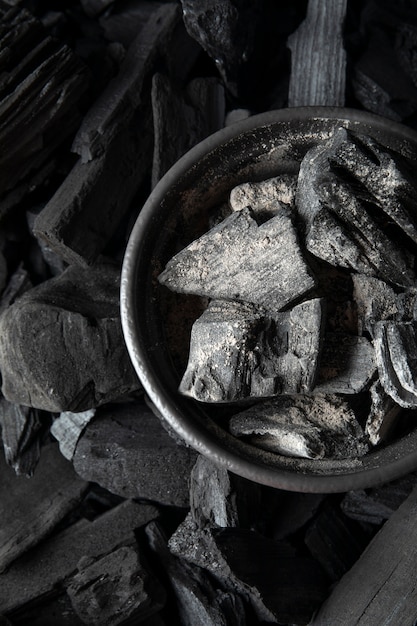Which type of grill is best for beef BBQ?
When it comes to barbecuing beef, the choice of grill can greatly impact the taste, tenderness, and overall outcome of your meat. There are several types of grills available on the market, each with its own unique features and benefits. In this article, we will explore the different types of grills and determine which one is best suited for beef BBQ.
Charcoal Grills
Charcoal grills are a popular choice among BBQ enthusiasts for their ability to impart a smoky flavor to the meat. They use charcoal briquettes or lump charcoal as fuel, which gives the beef a distinct taste. The high heat generated by charcoal grills allows for a good sear, locking in the juices and ensuring a juicy steak. However, they require some skill to use effectively and may take longer to heat up compared to other types of grills.
Pros:
- Enhances the flavor with a smoky taste
- Creates a good sear for juicy steaks
Cons:
- Requires skill to use effectively
- Takes longer to heat up
Gas Grills
Gas grills have gained popularity for their convenience and ease of use. They use propane or natural gas as fuel and offer precise temperature control, allowing you to cook beef at a consistent heat. Gas grills also heat up quickly, cutting down on waiting time. While they may not provide the same smoky flavor as charcoal grills, they are versatile and great for cooking larger cuts of beef.
Pros:
- Convenient and easy to use
- Quickly heats up for faster cooking
- Precise temperature control
Cons:
- Lacks the smoky flavor of charcoal grills
Electric Grills
Electric grills offer a hassle-free grilling experience as they are easy to use and maintain. They are powered by electricity and often have adjustable temperature settings. Electric grills don’t produce any smoke, making them suitable for indoor use or areas with strict fire regulations. While they may not provide the same charred flavor as charcoal or gas grills, they are a convenient option for those who want to grill beef without the fuss.
Pros:
- Easy to use and maintain
- Suitable for indoor use
Cons:
- May lack the charred flavor of other grills
The Verdict
Ultimately, the best type of grill for beef BBQ depends on personal preference and specific needs. If you prioritize the smoky flavor and don’t mind putting in some extra effort, a charcoal grill may be the way to go. On the other hand, if convenience and versatility are more important, a gas grill might be your best bet. Electric grills are a great option for indoor grilling or when simplicity is key.
Whichever type of grill you choose, remember that using high-quality beef and proper grilling techniques are just as important as the equipment itself. A well-marbled cut of meat, seasoned to perfection, will shine on any type of grill.
In conclusion, each type of grill has its own advantages and disadvantages when it comes to beef BBQ. Consider factors such as flavor preference, convenience, and cooking style to determine which grill will best suit your needs. Happy grilling!
Difference between charcoal and gas grills for beef BBQ
When it comes to hosting a summer barbecue in the UK, one of the key decisions you’ll need to make is whether to use a charcoal or gas grill. Both options have their own unique benefits, and understanding the differences can help you choose the right one for your next beef BBQ.
Charcoal Grills
A charcoal grill uses charcoal briquettes or lump charcoal as its fuel source. This traditional method of grilling imparts a distinct smoky flavor to the beef, which many BBQ enthusiasts appreciate.
One advantage of charcoal grills is their ability to reach high temperatures quickly. The intense heat allows for a nice sear on the beef, creating a crispy, caramelized crust. Charcoal grills are also great for slow-cooking beef cuts, as they maintain a consistent low heat for longer periods.
However, using a charcoal grill requires more effort and time compared to gas grills. You’ll need to light the charcoal and wait for it to reach the desired temperature before cooking. Additionally, cleaning up ash and disposing of used charcoal can be a bit messy.
Gas Grills
Gas grills run on propane or natural gas, providing a convenient and efficient option for beef BBQs. They are quick to start and offer precise temperature control, allowing you to easily adjust the heat while cooking.
One of the main advantages of gas grills is their convenience. With just a push of a button, you can have an instant flame and be ready to cook in no time. Gas grills also eliminate the need for cleaning up ash, making them a more user-friendly option.
While gas grills may lack the smoky flavor produced by charcoal grills, there are ways to enhance the taste. Using a smoker box or wood chips on a gas grill can infuse the beef with a smoky flavor similar to that of a charcoal grill.
Tip: If you’re using a gas grill for beef BBQ, consider marinating the meat in flavorful marinades or seasoning rubs to enhance the taste.
Which is Right for You?
The decision between a charcoal and gas grill ultimately depends on your personal preference and specific needs. If you prioritize the smoky flavor and don’t mind the extra effort, a charcoal grill might be the way to go. However, if convenience and ease of use are your top priorities, a gas grill will likely suit you better.
To summarize the differences:
| Charcoal Grills | Gas Grills |
|---|---|
| Produces a smoky flavor | Convenient and easy to use |
| Reaches high temperatures quickly | Precise temperature control |
| Great for slow-cooking | No need for cleanup of ash |
| Requires more effort and time | Lacks natural smoky flavor |
In the end, both charcoal and gas grills can produce delicious beef BBQ, allowing you to enjoy mouthwatering steaks, burgers, and other beef dishes all summer long.
How to Clean and Maintain a BBQ Grill for Beef?
When it comes to cooking delicious beef dishes on a BBQ grill, proper cleaning and maintenance are essential. Regular maintenance not only ensures that your grill is in good working condition but also helps enhance the flavor of the beef. In this article, we will provide you with some tips on how to clean and maintain your BBQ grill specifically for beef cooking.
Cleaning the Grill Grates
To start, always clean the grill grates thoroughly before and after each use. This helps remove any residue or food particles that could affect the taste of the beef. Use a wire brush to scrub the grates, making sure to reach all the corners. For stubborn residue, you can also soak the grates in warm, soapy water before scrubbing.
Removing Grease and Fat
Grease and fat can accumulate inside your BBQ grill, which not only affects the taste but also poses a fire hazard. After each use, carefully remove the grease tray or pan and dispose of the contents. Wipe down the interior with a damp cloth or sponge to remove any remaining grease.
Deep Cleaning
Performing a deep cleaning of your BBQ grill at least once a year helps remove built-up grime and ensures optimal performance. Start by disconnecting the gas supply if applicable. Remove all removable parts, such as the grates, burners, and flavorizer bars, and soak them in warm soapy water. Scrub them clean using a brush or sponge.
Tip: Use a mixture of equal parts vinegar and water to help break down grease and stubborn stains.
Final Maintenance Steps
After cleaning, make sure to reassemble all the parts of your BBQ grill correctly. Check the gas connections for any leaks or damage, and replace any worn-out parts if necessary. It’s also a good idea to oil the grates before each use to prevent sticking and enhance the flavor. Now, you’re ready to fire up the grill and cook some mouthwatering beef dishes!
By regularly cleaning and maintaining your BBQ grill, you can ensure that it functions efficiently and produces deliciously grilled beef. Remember to follow these tips, and your grill will be in top shape for many flavorful barbecues to come.
Importance of a Good Thermometer in BBQ
When it comes to achieving perfect results in your BBQ cooking, having a good thermometer is absolutely crucial. Whether you’re grilling steaks, smoking ribs, or slow-roasting a whole turkey, temperature control is key to ensuring that your food is cooked to perfection. Let’s explore why investing in a high-quality thermometer is a must for any BBQ enthusiast.
Accurate Temperature Measurements
A good thermometer provides accurate temperature readings, allowing you to monitor the internal temperature of your food precisely. This is essential for avoiding undercooked or overcooked meat, as well as preventing foodborne illnesses caused by inadequate cooking. With a reliable thermometer, you can easily determine when your food has reached the desired internal temperature, ensuring a safe and delicious meal every time.
Consistency and Precision
Consistency is key in BBQ cooking, and a good thermometer helps you achieve that. By accurately measuring the temperature, you can ensure that your cooking is consistent across multiple pieces of meat, resulting in evenly cooked food. Additionally, precise temperature control allows you to follow recipes more accurately, ensuring that your dishes turn out as intended.
Minimize Guesswork
Gone are the days of guesswork and risk of serving undercooked or overcooked meat. A good thermometer eliminates the need for guesswork, providing you with real-time temperature readings. This means you can cook with confidence, knowing exactly when to remove your food from the grill or smoker, resulting in perfectly cooked meals that will impress your guests.
Types of Thermometers
“There are various types of thermometers available for BBQ enthusiasts, including instant-read thermometers, leave-in thermometers, and wireless thermometers.”
Instant-read thermometers are great for quick temperature checks, while leave-in thermometers can be inserted into the meat during cooking and provide continuous readings. Wireless thermometers allow you to monitor the temperature remotely, so you can keep an eye on your BBQ while socializing with friends and family.
Top Tools Every BBQ Enthusiast Should Own
1. Meat Thermometer
A meat thermometer is an essential tool for any BBQ enthusiast. It ensures that your meat is cooked to perfection, avoiding the risk of undercooked or overcooked meat. With a reliable thermometer, you can easily monitor the internal temperature of your meat and achieve the desired level of doneness.
2. BBQ Tongs
Good quality BBQ tongs are a must-have for handling hot food on the grill. Look for tongs with long handles to keep your hands away from the heat, and sturdy construction that can handle heavy cuts of meat. Whether you’re flipping burgers or turning sausages, a pair of tongs will give you full control over your grilling.
3. Grill Brush
To keep your grill clean and in optimal condition, a grill brush is essential. Regularly cleaning the grates not only improves the flavor of your food but also prolongs the life of your grill. Look for a brush with sturdy bristles that can remove tough grime and grease easily.
4. BBQ Gloves
Investing in a pair of heat-resistant BBQ gloves will protect your hands while handling hot items like grill grates or cast iron pans. These gloves provide excellent grip and allow you to move around the grill confidently. Look for gloves that are made of high-quality materials such as silicone or leather.
5. Chimney Starter
A chimney starter is a handy tool for quickly and efficiently lighting charcoal. It eliminates the need for lighter fluid, which can impart unpleasant flavors to your food. Simply fill the chimney with charcoal, light it, and let it do the work. Within minutes, you’ll have hot coals ready for grilling.
6. BBQ Sauce Basting Brush
For those who love to add a flavorful glaze or marinade to their grilled creations, a BBQ sauce basting brush is a must. Look for brushes with heat-resistant bristles that can withstand high temperatures. These brushes allow you to evenly coat your food with delicious sauces, enhancing the taste and presentation.
7. Smoker Box
If you’re a fan of smoked flavors, investing in a smoker box will take your BBQ game to the next level. A smoker box is designed to hold wood chips or pellets that infuse your food with aromatic smoke. It’s a versatile tool that can be used on both gas and charcoal grills.
“A well-equipped BBQ enthusiast understands the importance of having the right tools to enhance their grilling experience.”
Remember, having the right tools can make all the difference in your BBQ journey. By investing in these top tools, you’ll be well-prepared to create mouthwatering dishes that will impress your family and friends at every outdoor gathering.
How to Prevent Beef from Sticking to the Grill?
Grilling a delicious piece of beef is the highlight of any summer cookout. However, there’s nothing worse than watching your carefully marinated steak or burger patty stick stubbornly to the grill grates. To ensure your beef cooks evenly and releases easily from the grill, here are some handy tips to prevent sticking:
1. Start with a Clean and Oiled Grill
Before you start grilling, make sure your grill grates are clean to avoid any leftover food particles from sticking to the beef. Use a grill brush to scrape off any debris. After cleaning, lightly oil the grates with a high smoke point oil such as vegetable or canola oil. This creates a non-stick surface and helps the beef release easily.
2. Pat Dry and Season Your Beef
Prior to placing the beef on the grill, pat it dry with paper towels. Moisture on the surface of the meat can cause sticking. Once dry, season your beef with your preferred rub or marinade. The seasoning not only adds flavor but can also create a barrier between the meat and the grill.
3. Preheat the Grill and Control the Heat
Preheating your grill is crucial to prevent sticking. Make sure your grill reaches the desired temperature before placing the beef on it. Additionally, it’s important to control the heat properly. If your grill is too hot, the beef may stick; if it’s too low, the meat can steam and stick as well. Aim for a medium-high heat for most cuts of beef.
4. Use the “Two-Zone” Grilling Technique
The “two-zone” grilling technique involves dividing your grill into two areas: a direct heat zone and an indirect heat zone. Start by searing the beef on the direct heat zone to create those beautiful grill marks, then move it to the indirect heat zone to finish cooking. This method helps prevent excessive sticking and allows for more even cooking.
5. Avoid Excessive Flipping
Flipping your beef too frequently can increase the chances of sticking. Allow the meat to cook for a few minutes on one side before flipping. This will help create a seared crust, making it easier to release the beef from the grill.
“Clean grates, proper seasoning, and controlling the heat are key to preventing beef from sticking to the grill.” – GrillMasterChef
By following these tips and tricks, you can ensure that your beef cooks perfectly and doesn’t stick to the grill. Enjoy your flavorful and tender grilled beef every time!
Conclusion
Investing in a good thermometer is essential for any BBQ enthusiast who wants to achieve perfect results every time. Accurate temperature measurements, consistency, precision, and eliminating guesswork are all benefits offered by a reliable thermometer. So, if you haven’t already, make sure to add a high-quality thermometer to your BBQ arsenal and elevate your grilling game to a whole new level.



